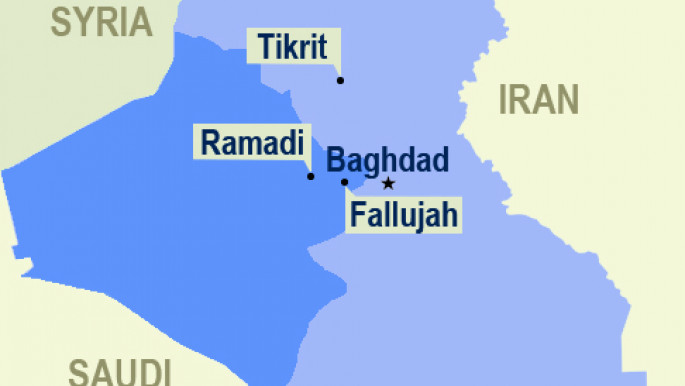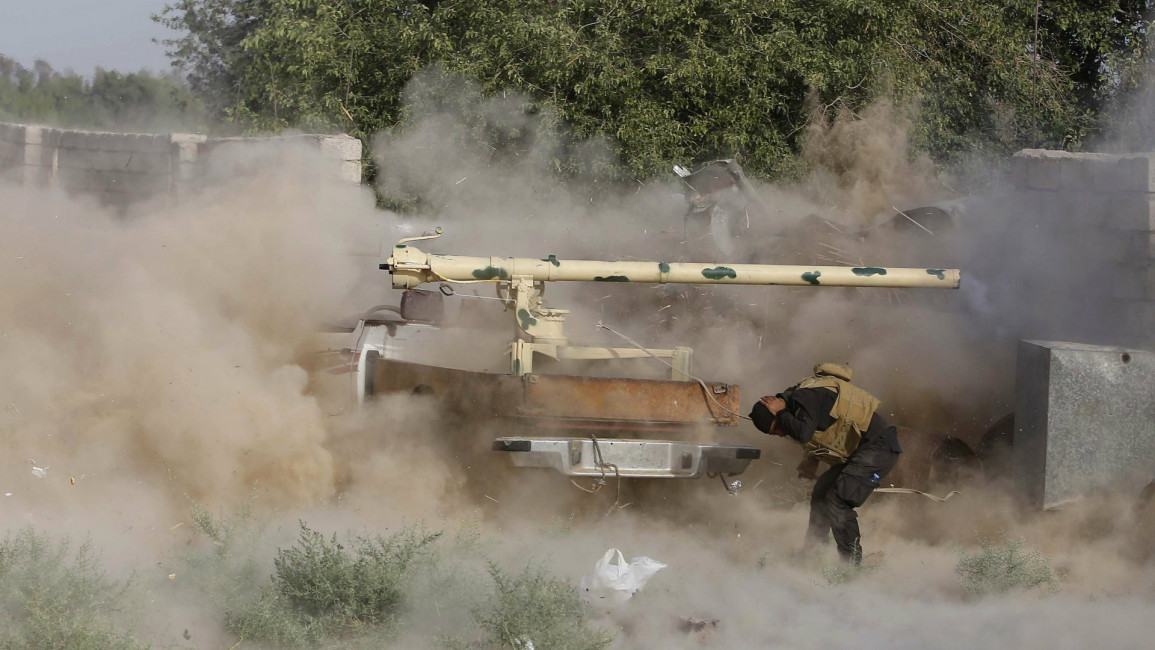Wave of suicide bombs strike Iraqi military in Anbar
The attacks came just hours after the Iraqi government on Tuesday announced the start of a wide-scale operation to recapture areas under the control of IS in Anbar.
| We have to think about whether we are deploying and arranging our assets effectively to meet that challenge |
Brig. Gen Saad Maan Ibrahim, the spokesman for the Joint Military Command, told The Associated Press on Wednesday that the attacks took place outside the IS-held city of Fallujah late the previous night.
The militants struck near a water control station and a lock system on a canal between Lake Tharthar and the Euphrates River where army forces have been deployed for the Anbar offensive, he said.
Ibrahim added that the attackers used a sandstorm that engulfed most of Iraq on Tuesday night to launch the deadly wave of bombings. He said it was not clear how many suicide attackers were involved in the bombings but they hit the military from multiple directions.
Last month, the water station near Fallujah fell into the hands of IS — following attacks that also included multiple suicide bombings, which killed a general commanding the 1st Division and a dozen other officers and soldiers.
Iraqi government forces recaptured the station a few days later. Fallujah lies to the east of the Anbar provincial capital of Ramadi, which was captured by the IS militants nearly two weeks ago in what was a major, humiliating defeat for Iraqi troops at the hands of the extremists.
The Iraqi operation to retake Anbar, which is said to be backed by Shiite militias and some Sunni pro-government fighters, is deemed critical in reversing the recent humiliating defeats to IS across the province.
Bloodied noses in Washington
The US has also had its nose bloodied by the loss of Ramadi and much of Anbar province and President Obama said Tuesday that the US and its allies needed to examine whether they are deploying military assets effectively against IS.
The White House says it already is responding to demands by Iraqi fighters for more powerful anti-tank weapons to confront armored vehicles that the Islamic State has used as potent and deadly car bombs.
In capturing the city of Mosul and then Ramadi IS has seized vast stocks of U.S. supplied military equipment, including armoured vehicles and heavy artillery, which have then been put to use in military campaigns in Iraq and Syria.
The U.S. attention to supply more higher-grade military equipment came after Defense Secretary Ash Carter over the weekend criticized Iraqi forces, saying their men fled the Islamic State advance on Ramadi without fighting back.
Obama, speaking at the end of a meeting with visiting NATO Secretary-General Jens Stoltenberg, did not respond to questions about Carter's comments. But he did say the challenge posed by the Islamic State in Iraq and Syria and the turmoil in Libya have forced NATO to look south as well as east in the alliance's mission.
"That means an increase in defense capacity building with other countries like Iraq or (Persian Gulf) countries that are interested in working with us, as well as the African Union," he said. "It also means we have to think about whether we are deploying and arranging our assets effectively to meet that challenge."
Held captive
Also Wednesday, Syrian activists said the Islamic State group released two elderly Christian women who had been held along with dozens of others since February in northeastern Syria.
At the time, IS kidnapped more than 220 Assyrian Christians after overrunning several farming communities on the southern bank of the Khabur River in Hassakeh province.
The two women, who are 70 and 75 years old, were released on Tuesday and have now reached the northwestern city of Hassakeh, said Osama Edwards, director of the Assyrian Network for Human Rights.
Another activist group, the Syrian Observatory for Human Rights, said the two were likely released because of their poor health. Some of the captives had been released previously.
Edwards said the IS is still holding 210 Assyrian Christians and is demanding $100,000 for each hostage.



